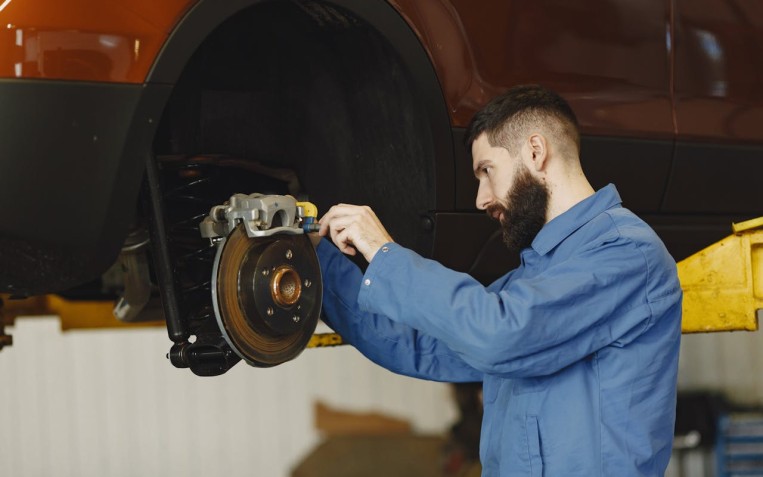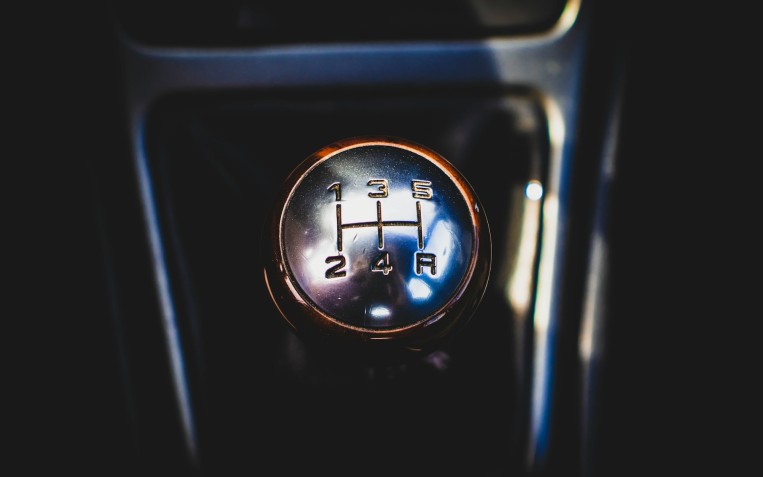How long do brake pads last?

Most manufacturers recommend that their brake pads last anywhere between 30,000 and 70,000 miles. However, this is dependent on a range of factors, such as the type of brake pads your vehicle has and the way your vehicle is driven.
Why are brake pads important?
Brake pads are vital to all vehicles. They are crucial to avoiding collisions by allowing you to stop safely in a wide range of situations and scenarios. This works when the pads that are fitted in the calliper, used to squeeze the brake pads against the motor to stop the car, are pushed into the sides of the brake disc when you press the brake pedal - causing friction that brings the car to a stop.
Over time, brake pads can wear out and become a safety concern for yourself and others. That's why keeping your braking components working properly is extremely important. It's good to understand how long your brake pads last and when to replace them. Find out more in our helpful guide.
Types of brake pads?
Low metallic - these brake pads last longer than organic brake pads but are much noisier.
Semi-metallic or sintered - these brake pads are fused with metal particles along with other materials. They have a long-life expectancy and offer great braking performance; however, they are prone to wearing down brake discs quicker than other pads.
Organic - these brake pads contain non-metallic fibres. They are cheap and quiet, therefore only suitable for daily driving and will not last a particularly long time.
Ceramic - these are the longest lasting out of all brake pads. As ceramic is strong, these brake pads can withstand a wide range of temperatures and are much more resistant to wear. They are more expensive but are ideal for durability and supreme braking performance.
What can impact the longevity of your brake pads
How many miles you cover
The simplest way to look at this is, the more miles you cover, the more you will use your brakes and the faster they will wear out.
Where you drive
Driving in areas with high traffic means you will be stopping and starting more frequently. This means your brake pads will not last as long compared to a smoother journey where you cruise through easily.
Weight of your vehicle
The amount of weight you carry in your vehicle can also impact the longevity of your brake pads. A fully loaded boot, four or five passengers or towing a caravan requires greater pressure and puts more strain on brake pads.
When to change your brake pads
Some of the main signs your brakes may not be working correctly or that it's time to invest in some new brakes include:
- Pulling to one side
- Brake warning light appears on the dashboard
- Sticky handbrake (when you feel resistance as you take the handbrake off and try to pull away)
- Vibration as you brake
- Grinding or squeaky brakes
Don't wait until your annual MOT and service to keep on top of your car safety. Make sure you top up your oil and brake fluid regularly, and keep on top of any maintenance to keep yourself, passengers, and others on the road as safe as possible. Find out more about your brakes and how they can be fixed or contact your local PTA branch today to book an appointment for your free brake check.
Related Content

The difference between disc and drum brakes
The brakes are an essential component of your vehicle, preventing any potential collisions or accidents from occurring. Disc and drum brakes are two braking systems used in modern cars. However, there are noticeable differences between each braking s...

How to tell if your car needs a new clutch
Do you own a car with a manual gearbox? The clutch plays a vital role in starting and driving your vehicle, particularly when shifting gears. Identify...

How long do electric vehicle batteries last?
One concern that many people have when considering electric vehicles is ‘How long does the battery last?’. Replacing an EV battery can be...

